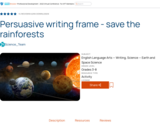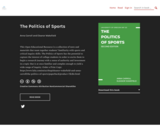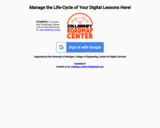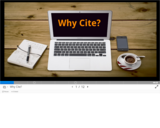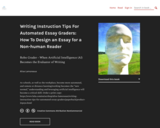This unit is focused on three classic fairy tales: The Three Little Pigs, The Three Bears, and Little Red Riding Hood. With each fairy tale, students are first exposed to the classic version, familiarizing themselves with the basic plot and lessons. Then students explore the ways authors change setting, characters, and plot while still maintaining the overall essence of the classic story. Some of the changes the authors make reflect the nuances of different cultures and environments, while others are made for entertainment and humor. Either way, students will explore the idea that different authors can use their own perspective and culture to shape the stories they write or retell. By reading multiple versions of the same classic fairy tale, students will also be able to grapple with the bigger lessons of each tale—the importance of not talking to strangers, how hard work and patience pay off, and the importance of respecting others’ property and privacy. Over the course of the unit, students will be challenged to think about how each of these unique themes is portrayed and how in each different version of the fairy tale the characters may learn the lesson in slightly different ways. It is our hope that this unit, in connection with others in the sequence, will help students see the power of storytelling and how simple stories can be changed and improved based on an author’s ideas and preferences.
In reading, this unit builds directly onto the reading strategies from unit 2. Students will continue to be pushed to be inquisitive consumers of text, asking and answering questions about characters, setting, and plot as they listen to and engage with a text. Students will also continue to work on retelling stories and including key details. Similar to units 1 and 2, students will continue to think deeply about characters and setting and how the details an author includes in the illustration and text help a reader better understand both. Because most of the focuses for this unit are a repeat of similar focuses from units 1 and 2, students should be pushed to a much higher level of rigor and understanding than in previous units. One new focus of this unit, however, is on comparing and contrasting the adventures and experiences of characters in stories. Students will be asked at multiple points to use information they have learned about key events, characters, and setting to compare and contrast different versions of the classic fairy tale. Students should be pushed beyond just superficial comparisons across the different stories. At the end of the unit, students will also have a chance to retell and act out the different fairy tales, putting their own “artistic” spin on the fairy tale.
In writing, students will continue to write daily in response to the text. In unit 2, students began to write answers that correctly answered the questions using facts. In this unit, students will be pushed to continue to focus on correct answers that may show some level of inferential or critical thinking. Students will also begin to learn how to include details from the text in their answers. At this point in the year, it is not important that students have the best evidence but rather that they are including some details that support the answer to the question in one way or another. Structure and grammar feedback during this unit should be based on assessment data from units 1 and 2.
